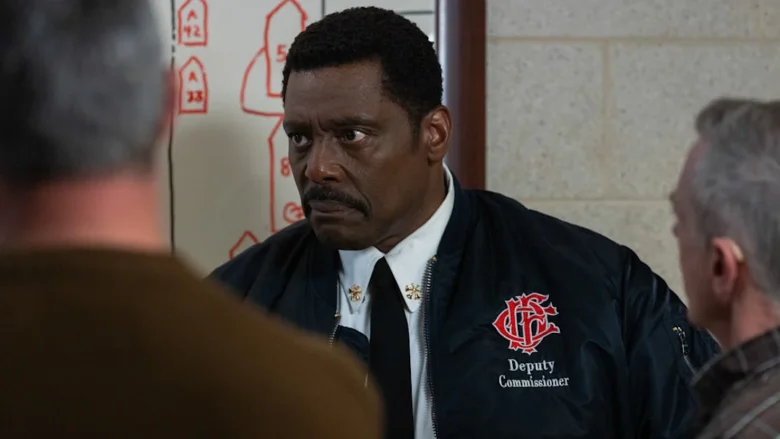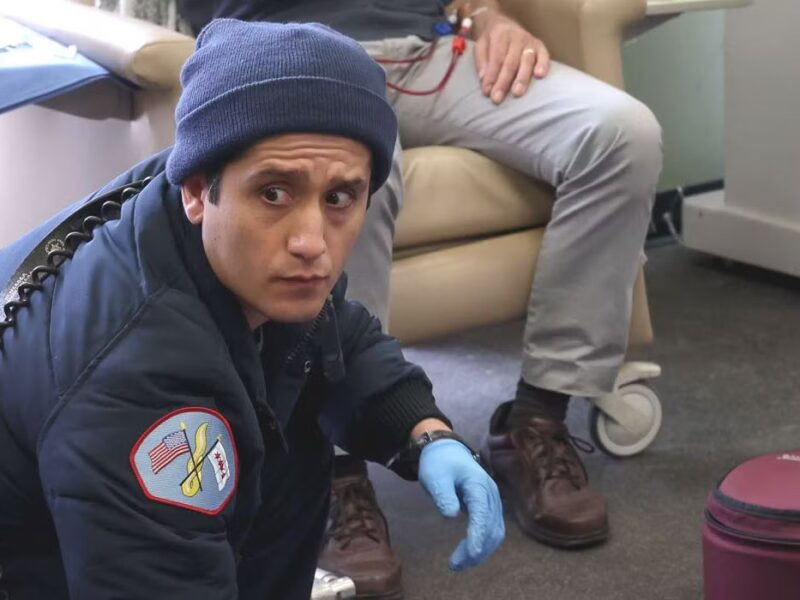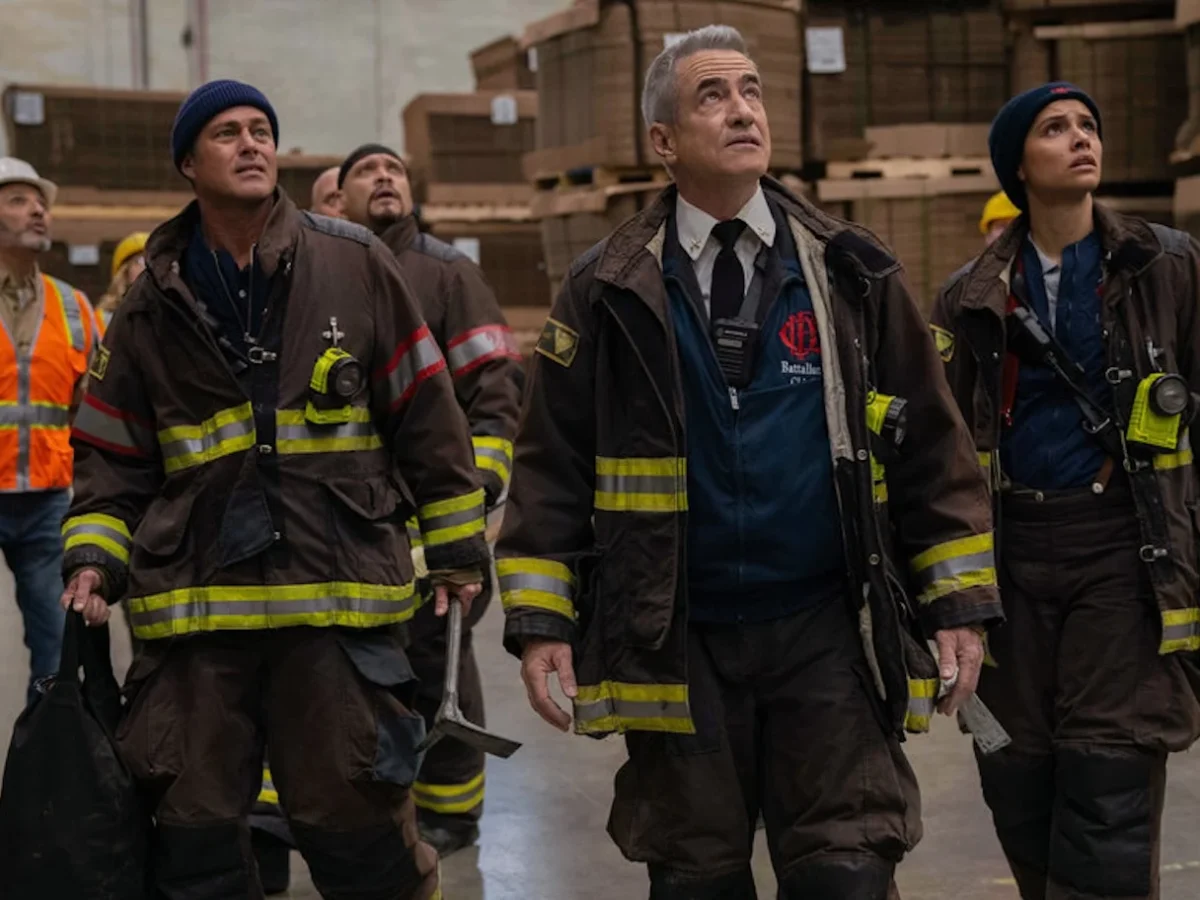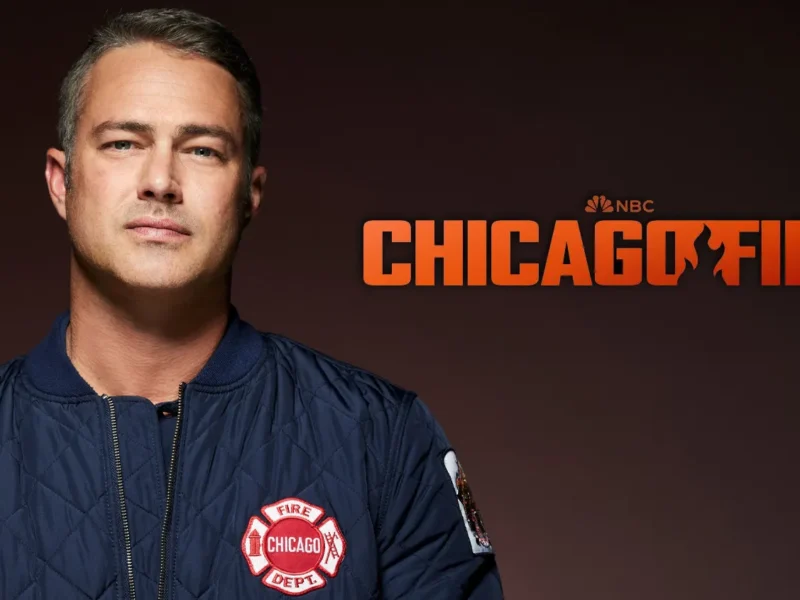Anticipation ran high for Chicago Fire‘s episode 18 of season 13, titled “Post Mortem”, and it didn’t disappoint. Promoted heavily by showrunner Andrea Newman and highlighted by the return of Eamonn Walker as Wallace Boden, this installment brought a somber and intense shift to Firehouse 51. Far from a celebratory comeback, the episode dealt with loss, accountability, and the fragility of life on the job.
Opening on a mysterious and tension-laden scene, Christopher Herrmann (David Eigenberg) watches a news report detailing a firefighter injured during a blaze. The atmosphere quickly shifts to introspection and confusion as familiar faces like Kelly Severide (Taylor Kinney) and Stella Kidd (Miranda Rae Mayo) join him, questioning how one of their own could’ve been left behind in what they believed was a cleared building.
Boden’s return brings interrogation and uncertainty
As Wallace Boden steps back into the fold, his presence signals more than just guidance—it’s judgment. He reveals to Severide, Kidd, and Herrmann that the fire commissioner has assigned him to investigate what went wrong at the scene. Joined by Chief Dom Pascal (Dermot Mulroney), Boden emphasizes that two major failures occurred: an injured firefighter and a fire scene that spun out of control. The characters are clearly rattled. When Boden assures them he will protect his team, Kidd’s skeptical reply, “That’s not a no,” lingers like smoke after the flames.
The episode then unfolds through a series of emotionally charged interviews. Joe Cruz (Joe Minoso) is sleep-deprived from parenting duties. Jack Damon (Michael Bradway) is revealed to have requested more shifts in a bid to prove himself. Stella Kidd speaks up for Sam Carver (Jake Lockett), recently returned from rehab, asserting his readiness despite the circumstances. Each testimony adds layers of doubt, camaraderie, and vulnerability to the fabric of Firehouse 51.
A shocking reveal and personal stakes
The structure of “Post Mortem” cleverly keeps viewers guessing. Through fragmented recollections and the absence of a name, the identity of the injured firefighter is kept secret until deep into the episode. The strategy injects a kind of suspense rarely seen in network procedural dramas. Flashbacks from Severide and Kidd bring urgency to the mystery, all while inching closer to the emotional fallout.
Initial clues point toward Carver, whose return had raised concerns. But in a poignant twist, the injured firefighter is revealed to be none other than Jack Damon, Severide’s brother. Damon, a relatively new addition to the team, lies stable post-surgery, but his future in the field is uncertain. The emotional toll is palpable—not just for Severide, but for the whole team. Firehouse 51 may have dodged a fatal blow, but the damage is far from superficial.
Accountability, loyalty, and a firehouse forever changed
As the episode wraps, Boden fulfills his promise, ensuring that no one from Firehouse 51 is officially blamed. Chief Pascal even offers himself as a scapegoat in a selfless move, but Boden sees the bigger picture. He commends Pascal’s leadership and closes the case with a mix of respect and quiet resignation. The fire may be out, but the embers of what transpired will smolder for episodes to come.
“Post Mortem” isn’t just a highlight of season 13—it’s a watershed moment for the series. The blend of mystery, emotional depth, and career-defining consequences elevates it beyond typical procedural fare. And with Jack Damon’s future uncertain, the door is wide open for Chicago Fire to continue pushing its characters into uncharted and emotionally resonant territory.
Will Firehouse 51 ever feel whole again?



















